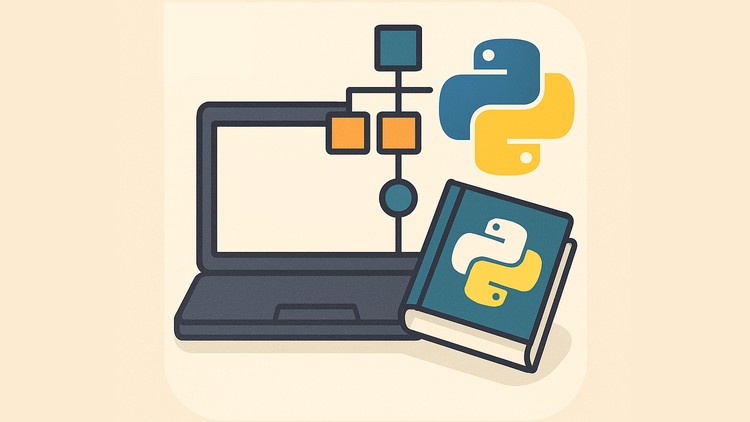
Master Classes, Objects, and OOP Principles to Write Clean, Reusable Python Code
What you will learn
Understand and apply the core principles of Object-Oriented Programming (OOP) such as classes, objects, inheritance, polymorphism, and encapsulation in Python.
Design and implement custom Python classes and objects with constructors, attributes, and methods.
Leverage advanced OOP techniques like method overriding, operator overloading, class methods, static methods, and abstract classes.
Write professional, scalable, and maintainable Python code by following OOP best practices and design patterns.
Add-On Information:
Note➛ Make sure your 𝐔𝐝𝐞𝐦𝐲 cart has only this course you're going to enroll it now, Remove all other courses from the 𝐔𝐝𝐞𝐦𝐲 cart before Enrolling!
- Embark on a foundational journey into the world of **structured Python development**, moving beyond procedural scripts to embrace a more organized and efficient coding paradigm.
- Uncover the **elegance of abstraction**, enabling you to model real-world concepts and complex systems within your Python programs, making them more intuitive and manageable.
- Develop the ability to **create your own blueprints (classes)** for data and behavior, allowing you to build sophisticated applications with greater control and clarity.
- Discover how to **instantiate and interact with custom data types**, bringing your defined structures to life and manipulating them effectively within your code.
- Explore the power of **code reuse**, learning how to build upon existing code structures to create new functionalities, saving time and reducing redundancy.
- Master the art of **bundling data and functionality together**, leading to self-contained and easily understandable components that enhance code organization.
- Understand the concept of **”is-a” relationships** between different types of objects, enabling you to build hierarchical and interconnected code structures.
- Learn to design programs that are **easier to debug and maintain** due to their modular and encapsulated nature.
- Gain insights into how OOP principles contribute to building **larger, more complex software systems** that can evolve over time.
- Develop a practical understanding of how to **manage complexity** in your Python projects through thoughtful object design.
- Acquire the skills to **reduce code duplication** by leveraging the inherent power of object-oriented design.
- Build a solid foundation for exploring more advanced Python libraries and frameworks that heavily rely on OOP principles.
- Foster a mindset of **problem-solving through object interaction**, approaching coding challenges from a new perspective.
- Learn to **implement flexible and adaptable codebases** that can easily accommodate future changes and new features.
- Understand how OOP concepts promote **collaboration** within development teams by establishing clear interfaces and responsibilities.
- PROS:
- Accelerated Learning Curve: Provides a clear and structured path for beginners to grasp complex OOP concepts.
- Practical Application: Focuses on real-world Python development scenarios where OOP is crucial.
- Foundation for Advanced Topics: Equips learners with essential knowledge for tackling advanced Python programming and software engineering.
- CONS:
- Potential for Over-Abstraction: Beginners might initially struggle with when and how much to abstract, potentially leading to over-engineered solutions.
English
language